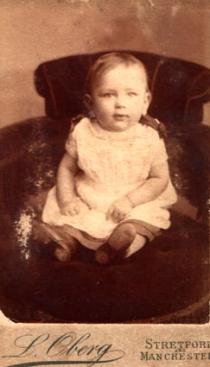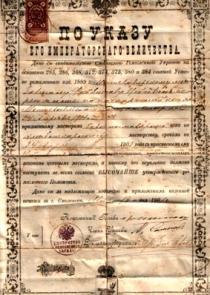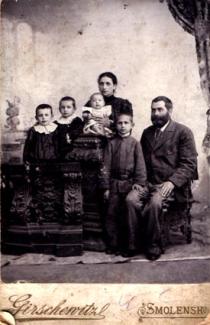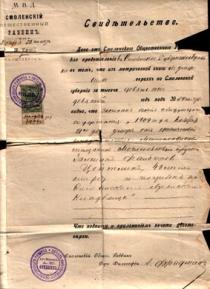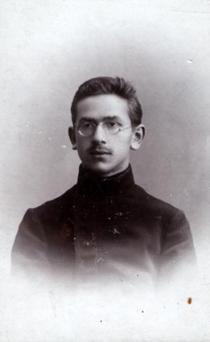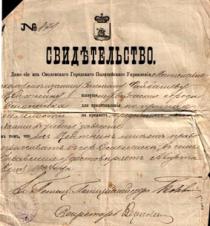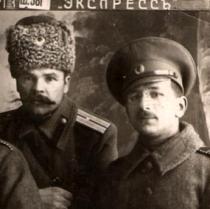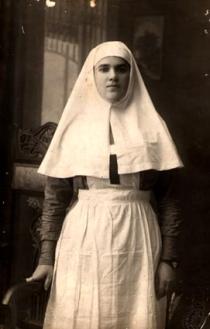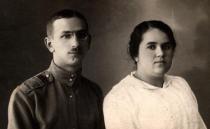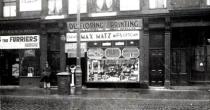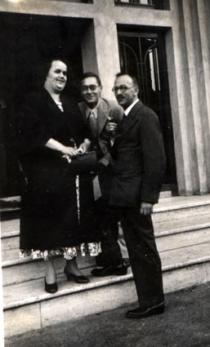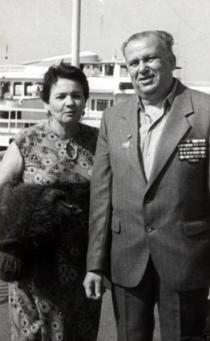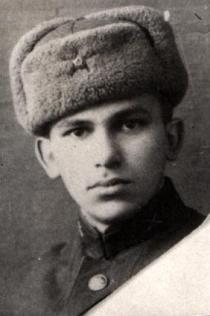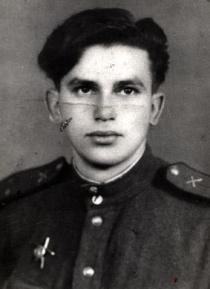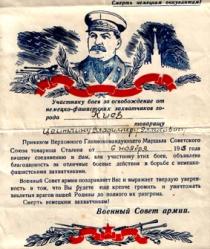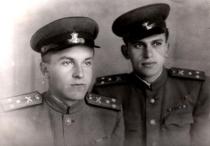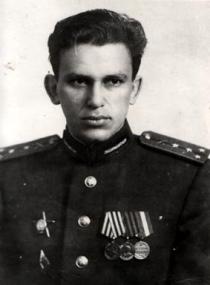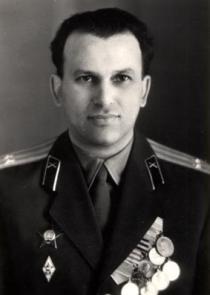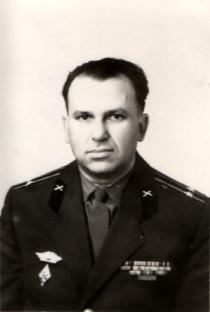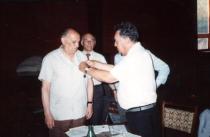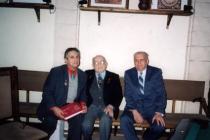This is my father Ellis Tseitlin by the house, where he was born. The picture is made in Manchester, England in 1934.
My paternal grandfather Zalman Tseitlin and grandmother Sara-Kreina Tseitlin lived in an ancient Russian city Smolensk. Grandfather and his young wife left for England to seek fortune. They had lived in Manchester, England 4 years. Their first child, my father was born in Manchester in 1892. In 1896 grandparents and their little son came back to Smolensk.
My father finished realschule in Smolensk. He worked in the local bank after finishing school. When WW1 began, father was drafted in the army. He was not drafted in specific troops. He was assigned an officer as he was educated. Father was a gun-soldier in the lines. He was wounded in the front and was sent to hospital in Smolensk. It was a hospital for the wounded Jews and all medical workers were Jews. My mother Mariana Havkina worked in that hospital as a nurse. My parents were young. They fell in love with each other and got married shortly after they had met, while father was still being treated in the hospital. They had a traditional Jewish wedding in accordance with the rites. Mother was a housewife after getting married.
Having discharged from the hospital, father entered the party of Bolsheviks being captivated with the communist ideas. He was overwhelmed in the revolutionary work. After the Revolution of 1917 father was appointed the deputy head of Smolensk municipal militia. During the Civil War he was appointed the commissar [political officer] of the anti-gang squad, to be more exact the struggle against Makhno gang. Father took part in the Civil War until 1920. Then father was demobilized from the army and was involved in financial and economic work. He was an educated person. There were few people like that back at that time. Parents moved to Moscow before I was born. Father was given an apartment in a large (for those times) 7-storied house in the center of Moscow at Nikitinskiy boulevard.
Our family was friendly and bonded. Mother was very kind and hospitable. Our house was full of guests: mother's pals and friends, relatives, who lived in Moscow. Brothers often came from Smolensk. Father had many friends. Father read a lot and was an erudite. He had rich library. He also nurtured in me love to books. Parents were pious, but they observed Jewish rites and marked Jewish holidays paying a tribute to the traditions. Jewish holidays were occasion to get together and have fun. We marked such Soviet holidays as: 7th of November - when the Soviet regime came to power, 1st of May - international labor day. The whole family went to demonstrations. In the evening our friends and father's colleagues and Civil War comrades came to see us. Father was a convinced communist and strongly believed in the party.
In 1930 father was sent to France to work. Mother and I went with him. We had lived in France for 2 years and in 1934 father was transferred to England. My father was appointed deputy USSR ambassador, Andrey Mayskiy was the USSR ambassador.
With the outbreak of the repressions in USSR, employees of the embassies and trade representative offices were recalled. Upon arrival they were immediately arrested and after a short trial sent to Gulag or shot. Father was lucky to stay alive. Like others he was recalled from England. Father was predestined like many other people, who came back from the overseas. Father was saved accidentally. During the Civil War father was a commissar of the squad and the commander was his friend, who consequently became the general of NKVD. The list of those who were to be arrested and shot in the first place, was brought to that general. Looking though the list the general saw my father's name and crossed it out. Of course, he was taking a risk, but things turned out to be OK. Father only was reprimanded and that was it. Upon our return from England father was assigned the head of industry funding department at the ministry of finance. Father had to resign after being reprimanded by the party. He worked in different inconsiderable companies. Father was inlawed after Stalin's death. He was not willing to be a dignitary any more and decided to resign.

